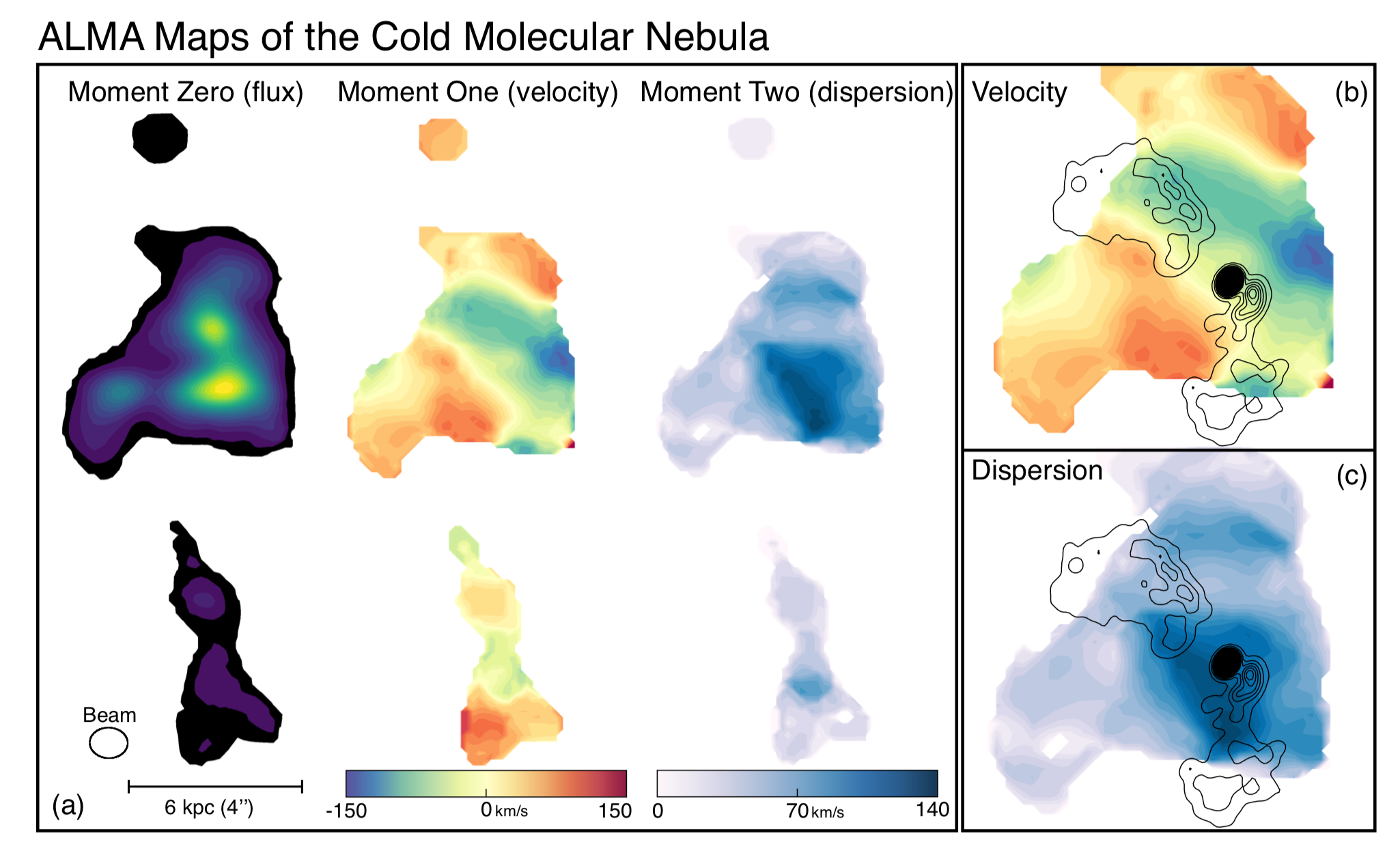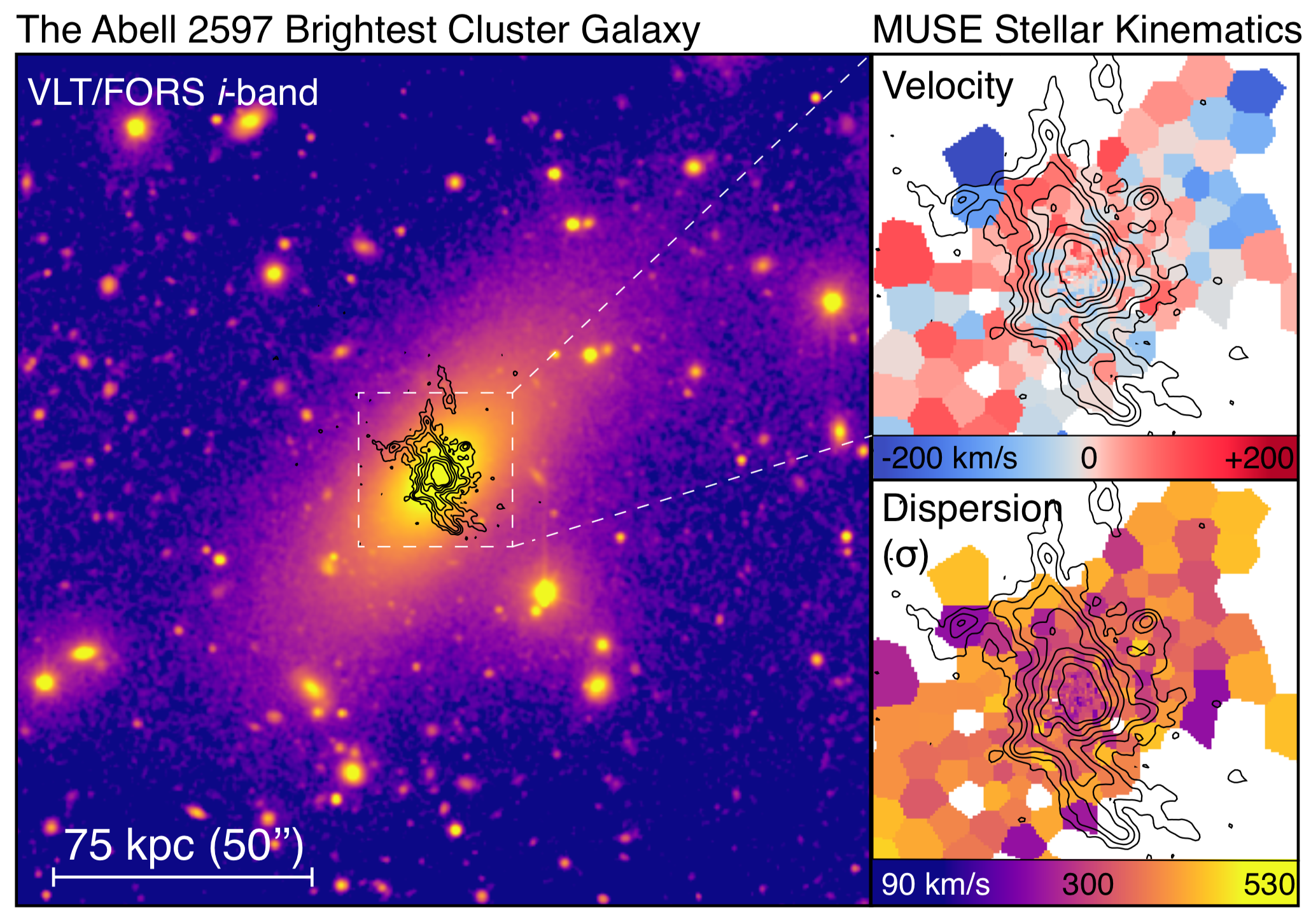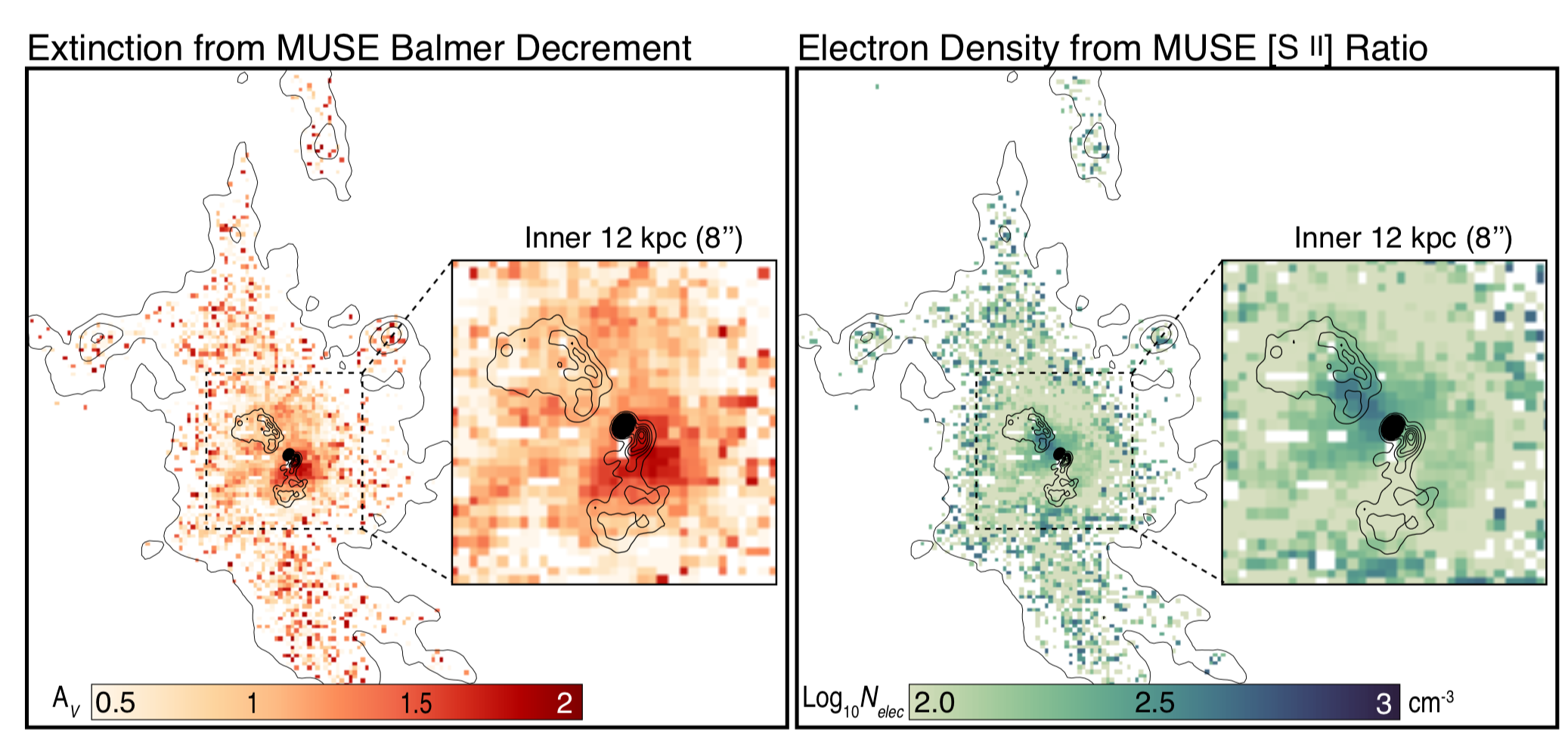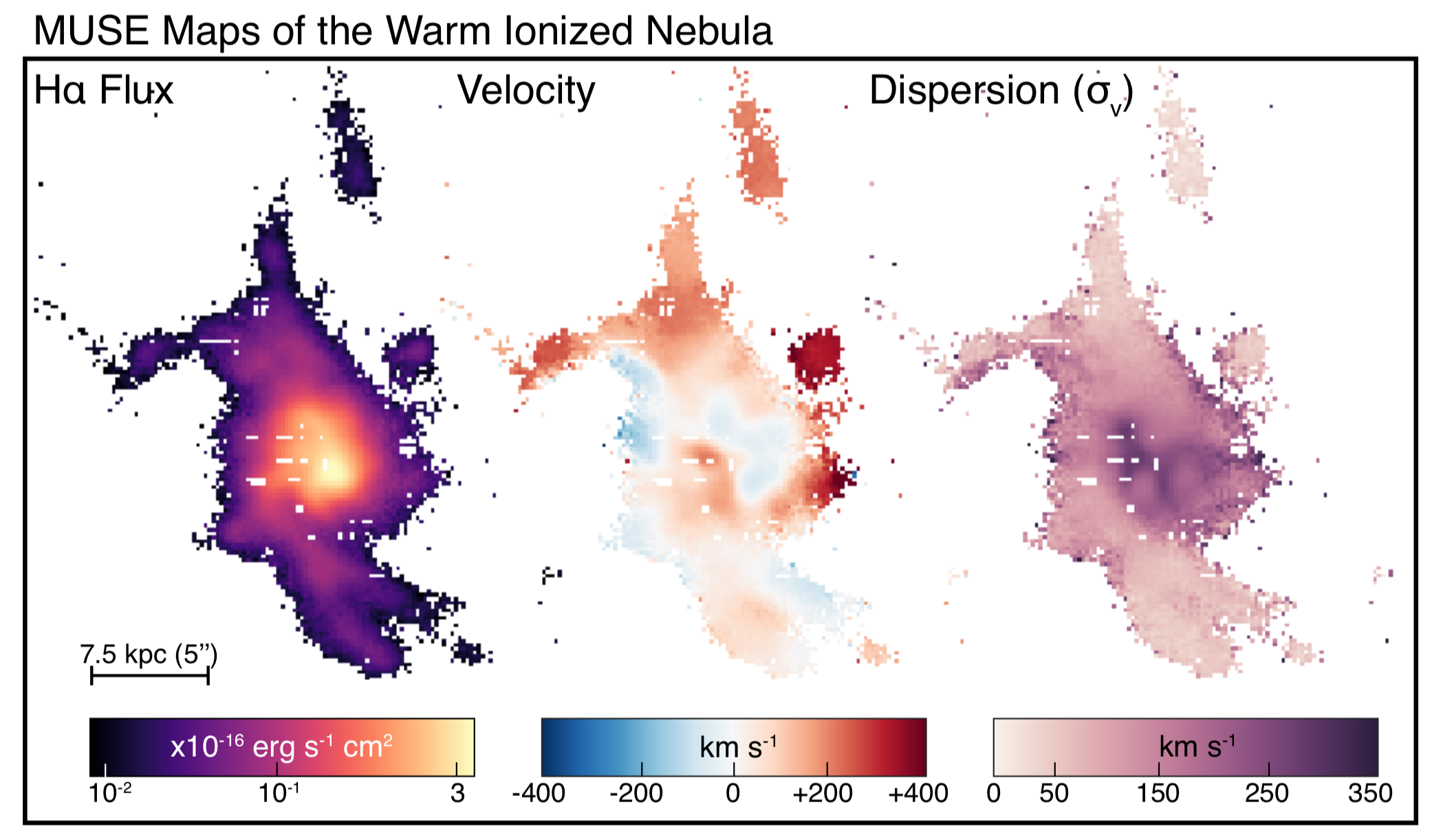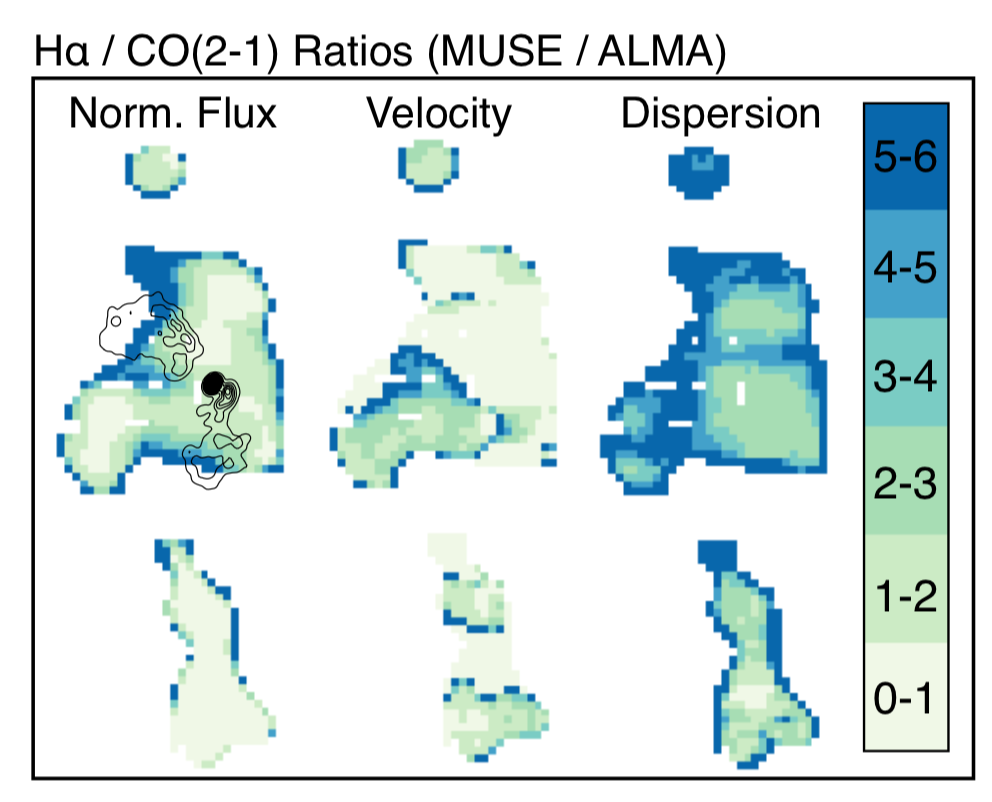cold galactic Rainstorms
A Banneker & Aztlán 2018 Project
Dr. Grant Tremblay | Harvard-Smithsonian Center for Astrophysics
I am advertising an exciting project for a Banneker & Aztlán student in Summer 2018.
The student will work with a highly multiwavelength dataset anchored by VLT/MUSE and ALMA observations of nearby galaxies, representing the current state-of-the-art of ground-based observational astronomy. When these data are combined with observations from space-based telescopes (such as Hubble and Chandra), a truly hyper-dimensional (e.g. multiphase and multidimensional) understanding of galaxies emerges.
Enter the Close AGN Reference Survey (CARS), a large collaboration our group founded in 2011. CARS leverages MUSE, ALMA, and space-based observations to shed light upon the many unanswered questions associated with the "black hole feedback" paradigm, including the conditions of star formation amid kinetic and radiative feedback from active galactic nuclei (AGN).
I'm excited to invite a fabulous B&A student to join CARS as a new associate member, and therefore gain access to to this spectacular dataset.
The project
I have designed an ambitious yet self-contained project whose main deliverable will be a first author publication for the student. Writing any paper (particularly your first!) is a hefty undertaking, but I hope to make it an efficient and fulfilling adventure.
The student will be under no pressure to complete this paper during their short stay at the CfA, of course - I view this as the start of a longer-term collaboration, and will happily work with the student remotely following their departure (through the publication of their paper and beyond). The bulk of the data analysis, however, can be completed on a timescale that interfaces well with the standard B&A research schedule.
Many summer research students burn half of their summer away fighting with technical challenges, learning to reduce finicky, complex datasets with esoteric astronomy-specific software packages (e.g. IRAF, etc.). I plan to eliminate that aspect, thereby lowering the technical barrier-to-entry, and focusing instead on the science. The student will nevertheless gain invaluable experience in coding with Python and using High Performance Computing resources (see below).
The project's ultimate direction will be structured but flexible, depending on the student's specific scientific interests. In general, however, the student will:
- Embark on a highly multiwavelength analysis of a single galaxy (student's choice) for which I have MUSE, ALMA, HST, and Chandra data in-hand.
- Learn to reduce & analyze that data (with an emphasis on analysis). While the student will learn how these data are collected and reduced, they will not need to worry about spending too much time learning four different software packages. The data will instead be mostly "science-ready".
- Efficiently arrive at publication-ready results by systematic exploration of the large parameter space spanned by these datasets. I will get them started on how they might explore this parameter space with a number of easy-to-learn Python-based tools, but will let the student do the exploring on their own.
- The student will, for example, learn to produce spatially resolved velocity, velocity dispersion, and line ratio maps for the warm ionized and cold molecular gas phases in the galaxy (examples of which are shown below).
- Gain a lot of experience with programming in Python, one of the world's most powerful and flexible programming languages. The skills the student learns here will be portable and highly valuable in effectively any field they wish to pursue. Note: the student does not need to have extensive prior experience with programming! If they've never written a line of code in your life, that's okay.
- Gain experience in high performance computing (HPC). The codes I'll show the student how to run are massively parallel and would take far too long to run on a lowly desktop workstation (and they'd melt a laptop!). The student will therefore learn to run their code on Hydra, the Smithsonian's High Performance Computing cluster. Again, just as for programming, HPC skills are widely valued in the emergent era of Big Data, so this will be time well spent.
If you have questions or would simply like to discuss the project, you're always welcome to email me at:
grant.tremblay {at} cfa.harvard.edu







